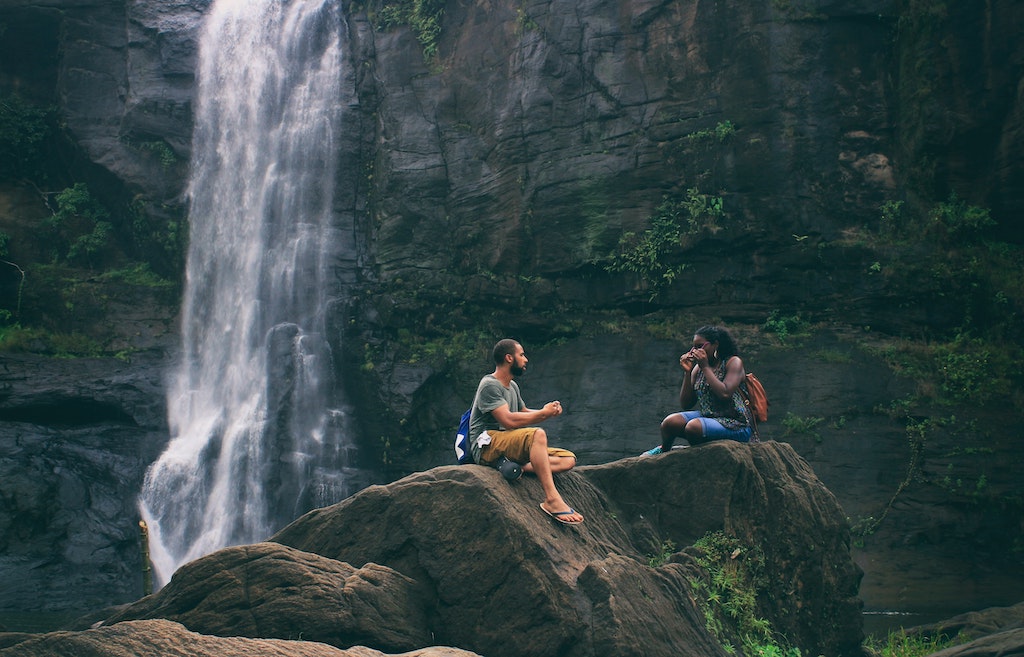The love of travel brings people from different backgrounds and walks of life together. It doesn’t matter where you’re headed or what the specifics of your itinerary might be. Travel is one of the things in life that’s bound to bring you intense excitement and happiness.
Scientists have actually studied this effect on people. And they’ve found that experiential purchases make us happier than material ones. A lot of that additional value and pleasure comes from the anticipation. It’s something any traveller can instantly relate to.
The anticipation of travel can make you far happier than spending the same amount of money to own something. But are you really reaping all the benefits of your experiences?
We soak up the sights and sounds, sample strange foods, and take back unusual items as souvenirs. Yet amid these rituals, we could also be doing more to learn, and in the process become more innovative upon our return.
A boost of creativity
You’ll find plenty of anecdotal evidence to suggest that travel can heighten creativity. Stories penned by the likes of Ernest Hemingway were inspired by scenes or experiences encountered in their travels. Artists such as Paul Gauguin made some of their most famous paintings after visiting exotic destinations.
Again, however, science takes us beyond the things we merely assume to be true, affirms it, and provides a more in-depth explanation. In this case, the effects of travel on creativity are linked to the inner workings of our brains.
Learning is made possible by a quality in our brains called neuroplasticity. Physiological changes take place in the brain when faced with new stimuli. Our neurons form connections that weren’t there before, physically enabling different pathways of thinking.
Neuroplasticity is at its highest during childhood. Kids are constantly absorbing new information, and their ability to learn rapidly is greater than adults. Another physiological change in the brain, called synaptic pruning, continually reduces the connections between neurons as we grow older.
The good news is that this ability to form new connections and think differently isn’t doomed to dwindle away into nothingness with age. We can continue to learn and train our brains for plasticity and growth.
Two proven ways to do that are maintaining physical fitness and experiencing an ‘enriched’ environment. Such environments must have novelty, engage the attention, and present challenges. Travel combines all of the above. It inherently provides you with a boost of creativity.
In search of an application
It’s heartening to know that indulging in your passion for travel will also make you more creative in the process. And while you don’t have to go out of your way to enjoy that benefit, you can certainly make the extra effort to step outside your comfort zone and learn.
Enhancing creativity is good news for those who work in certain fields. Not just writers and artists, but also designers, craftsmen, chefs, performers, and communicators. You get to come back and bring added value to the table as far as your professional occupation is concerned.
As valuable as creativity may be in general, it may not be of equal benefit to different careers. For some, innovation is more relevant. The difference between the two? It’s a matter of execution, or application.
Using travel to foster innovation
Creativity and innovation are closely related. Before you can be innovative, you have to be creative. It’s what helps you to come up with big ideas.
However, ideas, even good ones, are actually quite common. Ideation is a key process leading to innovation, but it receives disproportionate focus.
Travelling can help you become more innovative as well as creative. But doing so requires you to pay active attention, and seek out specific experiences that can be related to an application you already have in mind.
That entails some level of forethought. If you were planning to build a conservatory, for instance, you’d be visiting greenhouses and gardens in different countries. You’d observe how non-native plants are enabled to thrive in foreign conditions. And you’d ask in-depth questions of the people involved.
Upon your return, you’d then look at how those insights could be applied to your own efforts. You’d look up roof sheeting suppliers and seedling nurseries and find whatever lets you align your vision with local conditions.
You don’t have to turn your travels into a business trip. You can definitely take your mind off work, but stay curious. In the modern age, people encounter the same problems everywhere. Observe how those who live in very different parts of the world come up with solutions that might apply to the ones you face back home. Once you get back, your experiences can enrich your work, and others, too.


